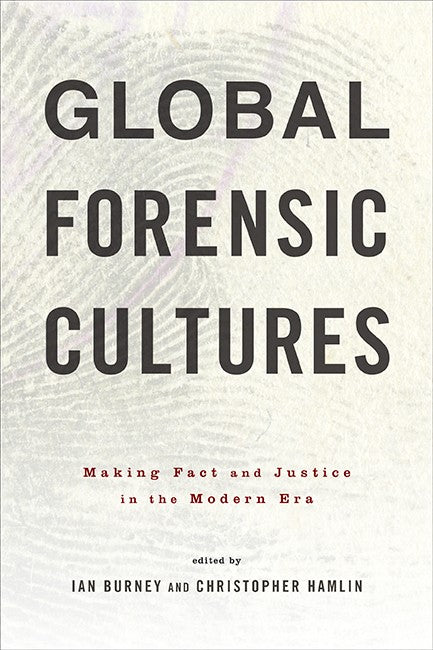Acknowledgments
Introduction: Forensic Facts, the Guts of Rights
Christopher Hamlin
Part I. Evidence and Epistemology
Chapter 1. The Value(s) of Methods: Method Selection in German Forensic Toxicology in the Second Half of the Nineteenth Century
Marcus B. Carrier
Chapter 2. The Imperial Serologist and Punitive Self-Harm: Bloodstains and Legal Pluralism in British India
Mitra Sharafi
Chapter 3. Handwriting Analysis as a Dynamic Artisanal Science: The Hardless Detective Dynasty and the Forensic Cultures of the British Raj
Projit Bihari Mukharji
Chapter 4. Spatters and Lies: Contrasting Forensic Cultures in the Trials of Sam Sheppard, 1954-66
Ian Burney
Part II. Practices of Power and Policing
Chapter 5. Death and Empire: Medicolegal Investigations and Practice across the British Empire
Jeffrey Jentzen
Chapter 6. Fingerprints and the Politics of Scientific Policing in Early Twentieth-Century Spain
José Ramón Bertomeu Sánchez
Chapter 7. From Bedouin Trackers to Doberman Pinschers: The Rise of Dog Tracking as Forensic Evidence in Palestine
Binyamin Blum
Chapter 8. ""DNA Evidence Cannot Lie"": Forensic Science, Truth Regimes, and Civic Epistemology in Thai History
Quentin (Trais) Pearson
Part III. Training and Transmitting
Chapter 9. Cleaning Out the Mortuary and the Medicolegal Text: Ambriose Tardieu's Modernizing Enterprise
Bruno Bertherat
Chapter 10. The Strange Science: Tracking and Detection in the Late Nineteenth-Century Punjab
Gagan Preet Singh
Chapter 11. Forensic Knowledge and Forensic Networks in Britain's Empire: The Case of Sydney Smith
Heather Wolffram
Afterword: A Tale of Two Cities? Locating the History of Forensic Science and Medicine in Contemporary Forensic Reform Discourse
Simon A. Cole
List of Contributors
Index
Request Academic Copy
Please copy the ISBN for submitting review copy form

